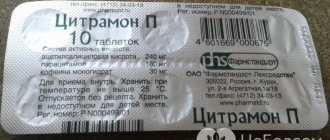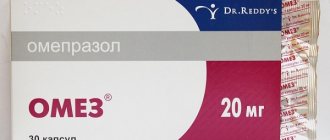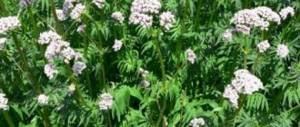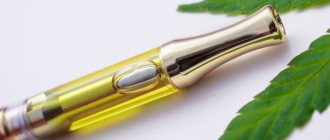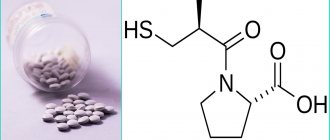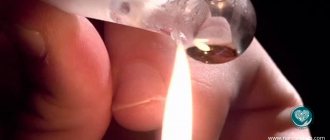One of the most important drugs that should be part of a home first aid kit is nitroglycerin. People with heart problems know that our “engine” needs such emergency help like air. Without exaggeration, this drug has saved more than one life from imminent death. Everyone knows when to take it to feel relief. But no one thinks about the possible consequences and complications after using the medicine.
Some emergency conditions require the use of this drug more than once. Can death occur due to an overdose of nitroglycerin? - yes, this is possible. So, let's find out what needs to be done to save the injured person from death.
About the drug
Nitroglycerin is a chemical compound of glycerin with nitric acid. From the Latin name of the last substance - acidum nitricum, the drug received its well-known name.
In the 19th century, this substance was used as an explosive. Subsequently, a number of studies were conducted with the participation of volunteers, which helped to discover and prove the effect of the drug in relieving heart pain and lowering blood pressure. Then it was officially recognized as a medicine.
The drug is used in cardiology - it increases blood flow, dilates blood vessels, which reduces blood pressure and eliminates pain. Nitroglycerin is also used to soothe intestinal and hepatic colic, as it has a relaxing effect on the muscles of the gastrointestinal tract.
This drug is not used to treat the cause of the disease, but only to relieve symptoms. All because of the short-lived, albeit quick, effect.
The drug is available in three forms: capsules, tablets and alcohol solution. A nitroglycerin tablet is placed under the tongue, not exceeding 6 tablets per day. Alcohol drops, take in an amount of no more than 3 per sugar cube. Daily dose – 15 drops. Improvement occurs in two minutes, the duration of exposure is about an hour.
The intensity of administration and dosage of the drug is determined by the doctor, because everything depends on the nature and severity of the disease. Improper treatment at home often causes nitroglycerin poisoning, which can be fatal.
How does an overdose occur?
- For a long time, nitroglycerin was produced only in tablets for resorption under the tongue (in sublingual form), but now there are many forms of release: aerosols, drops, films for fixation on the mucous membrane. Such diversity can create confusion for patients who are accustomed to a certain method of administration, especially since nitroglycerin users are usually elderly, conservative, and difficult to adapt to new things. That is why it is important to read the annotations very carefully and strictly follow the instructions of the doctor prescribing the drug, and relatives of elderly patients need to ensure that uncontrolled use of medications does not occur, when people sometimes forget that the pill has already been taken.
- Despite the fact that nitroglycerin perfectly relieves “heart” symptoms and helps with an attack of angina pectoris (when the patient feels severe pain in the heart resulting from insufficient oxygen supply), it is not a remedy that can cure the disease itself, but only alleviates the condition, therefore will be a temporary solution to the problem. However, there is nothing temporary that would not become permanent, so many people who are careless about their own health, instead of undergoing treatment, constantly “save themselves” by resorting to the coveted pill.
- The problem is that the drug is addictive, and the dose that previously helped suddenly becomes ineffective, making you want to take another pill. But the fact that the medicine does not act for its intended purpose does not mean that it does not work at all, and therefore increasing the dose first leads to side effects, and if the overdose is too large, it leads to nitroglycerin poisoning, an acute condition that can end in death.
- Sometimes people are so carried away by the usual remedy that they resort to it even with slight discomfort, for fear of an attack, and then “add” in the event of a real pain syndrome, believing that “the more the merrier” - alas, this approach can become fatal mistake.
- The next reason for poisoning is the ability to be quickly absorbed through the skin. Therefore, when using the drug in the form of drops, sometimes a dangerous situation arises when the substance spills and gets on the skin (an elderly person with heart pain can easily make an awkward movement; nitroglycerin can also be spilled by a small child who gets to the first aid kit).
- Children, in addition, may be attracted by the pleasant sweet taste of the substance, which is one of the components of the tablet, as well as by its “toy-candy” size. Wanting to play or copying the actions of their beloved adults, children run the risk of very serious poisoning with a high risk to life.
- And the last reason is taking nitroglycerin together with other substances for which there is categorical incompatibility: they aggravate each other’s effects (for example, this applies to any alcoholic drinks, especially strong ones). However, we will talk about this in more detail.
Lethal dose
At one time, a minimum of 0.5 mg and a maximum of 1.5 mg of nitroglycerin is prescribed. To relieve an acute attack of pain, specialists carry out treatment according to the following scheme: take 3 tablets within fifteen minutes. This administration is carried out if there is no improvement after one tablet, the next dose is taken every five minutes. The time regimen cannot be shortened, and taking more than three tablets at a time is also prohibited.
After taking four tablets or more, with a violation of the time interval, the first signs of an overdose of nitroglycerin occur. Taking the drug more than 20 mg of the substance per kg of body weight leads to severe nitroglycerin intoxication. Death occurs when the concentration in the blood is 100–130 mg of the substance.
Overdoses of nitroglycerin rarely occur in hospitals when the drug is administered intravenously, since doctors carefully calculate not only the dosage, but also the speed of administration of the drug.
In what cases is Nitroglycerin needed?
The substance is a mixture of an ester (glycerol) and a compound containing nitrogen. Its properties are somewhat reminiscent of palmitic acid, which was also previously used to create explosive compounds. The drug is most often prescribed for pathologies of the cardiovascular system. Indications for use are:
- cardiac ischemia;
- angina pectoris of any course;
- spasm of the coronary arteries during angiography;
- heart attack;
- pulmonary edema due to stagnation of blood in the pulmonary circulation;
- chronic heart failure at any stage.
In addition, it is possible to take Nitroglycerin for esophageal dyskinesia, acute inflammation of the pancreas, and biliary colic.
What side effects might there be?
Nitroglycerin intoxication is dangerous both because of the ingestion of a lethal amount of the substance and because of side effects that can increase unpredictably.
Side effects:
- Dizziness. This is one of the first adverse reactions with general weakness.
- Blood rushes to the upper part of the body. The face turns red.
- Skin rashes. Allergy from an overdose manifests itself in the form of a rash; cases of anaphylactic shock and Quincke's edema are not uncommon.
- Headache. In the first days of using the drug, patients report frequent migraines.
- A decrease in blood pressure that occurs sharply, which is life-threatening.
- Loss of visual acuity. This side effect is temporary and vision is quickly restored.
Experts strongly recommend seeking emergency medical help if the patient’s condition does not improve after taking three tablets. Since taking the next dose will most likely lead to undesirable consequences in the form of an overdose.
Mechanism of action
Nitroglycerin is good for the heart. It is able to dilate blood vessels and also increase the flow of oxygen. That is why this remedy is often used for angina pectoris, that is, a disease characterized by pain in the heart muscle due to lack of air. Could an overdose occur in this case?
What other diseases does the medicine in question help with? Experts say that this remedy is often used for diseases of the biliary tract, as it relaxes the gastrointestinal tract muscles well.
It should also be noted that sometimes nitroglycerin is used for embolism (that is, blockage) of the central retinal artery of the visual organ.
What side effects can develop after using the medicine in question incorrectly? Experts talk about the following unwanted reactions:
- severe general weakness;
- blurred vision;
- dizziness;
- severe headache, especially in the first days of use;
- allergies, manifested in the form of urticaria;
- shock (in especially severe cases);
- a sharp decrease in blood pressure;
- redness of the facial skin.
Contraindications for use
Due to the many dangerous side effects of overdose, there are restrictions on taking this medication.
Contraindications:
- Damage to blood vessels.
- Intracranial pressure. Taking the substance causes a rush of blood to the face and neck.
- Damage to the heart muscle. In case of exacerbation of coronary artery disease, this drug should not be taken. And if heart pain and other symptoms occur, call an ambulance for proper treatment.
- Hypertension.
- Childhood. Complex therapy is used to treat angina pectoris in children; a qualified specialist will not prescribe nitroglycerin in this case.
- During pregnancy, during breastfeeding. How nitroglycerin affects the mother and child during pregnancy remains a mystery. It is prescribed if the benefit to the mother significantly outweighs the risk to the child's health.
Mechanism of action
Indications
Nitroglycerin is mainly used to treat and prevent angina pectoris, as well as to relieve an attack of acute myocardial infarction. The drug has the following properties:
- dilates blood vessels, thereby reducing the load on the heart and brain;
- increases oxygen levels in the blood;
- reduces blood pressure, so is sometimes used for hypertension;
- relaxes the smooth muscles of the gastrointestinal tract, due to which it is used for diseases of the biliary tract;
- can occasionally be used for embolism (blockage) of the main retinal artery.
Nitroglycerin is contraindicated for use in the following pathologies and conditions:
- glaucoma;
- increased intracranial or low blood pressure;
- consequences of myocardial infarction;
- significant cerebral atherosclerosis;
- pregnancy, lactation;
- children's age (not recommended under 18 years of age).
Possible side effects from various organs and systems:
- Central nervous system - headache, dizziness, vision problems at the beginning of treatment, weakness, lethargy.
- Cardiovascular system – decrease in blood pressure until collapse.
- Gastrointestinal tract - nausea and vomiting, diarrhea, dry mouth.
- Skin – facial redness, development of an allergic reaction, itching and burning.
https://www.youtube.com/watch?v=xwLk6cwokJ0
According to the instructions for use, the recommended dose of the drug is 1-2 tablets per day.
Taking the drug in a larger dosage or increasing the frequency of use can lead to serious harm consequences - Nitroglycerin belongs to the group of organic nitrates, therefore, with frequent use it becomes addictive, which is why the patient feels the need to constantly increase the dose.
It is necessary to understand that the maximum effectiveness of the medicine is achieved by taking 1-2 tablets. You should not take more than three tablets at a time, as the drug is quickly absorbed into the blood and can cause poisoning.
Important
If the dose is slightly exceeded, a more acute manifestation of side effects is observed, and with a serious overdose (for example, when 25-50 mg of a substance enters the blood), there is a danger of poisoning, the development of complications and even death.
The lethal dose of Nitroglycerin is 100-150 mg per kg of weight. If you take more than 200 mg/kg, in the absence of medical intervention, death will occur within 5-7 minutes.
Signs of overdose:
- cyanosis of lips, palms, nails, various areas of the skin;
- dry mouth, disruptions in the gastrointestinal tract, nausea and vomiting;
- shortness of breath, weakness, severe dizziness, possible loss of consciousness;
- increased body temperature, convulsions, increased intracranial pressure.
Ultimately, if medical assistance is not provided, orthostatic collapse may develop, a pathology in which blood pressure drops sharply when changing body position.
Nitroglycerin has a very fast and pronounced effect, in a matter of minutes it relieves pain in the heart area and stops an attack, but in case of an overdose, its speed of action can become a disadvantage.
First of all, in case of poisoning, you need to call an ambulance, and then carry out a set of first aid measures:
- Lay the patient on a flat surface and elevate his legs, for example, by placing a cushion under them.
- Provide people with maximum access to fresh air. If it is in a stuffy room, it is better to take it outside.
- Perform gastric lavage using warm water or saline.
- Give a viscous drink (jelly, uzvar).
- Next, symptomatic medications are prescribed that restore the level of required blood pressure, equalize the heart rate, etc.
Due to the lack of an antidote to Nitroglycerin, symptomatic therapy is recommended as much as possible. With low blood pressure, the patient needs caffeine - you can give him strong coffee to drink. Nausea is eliminated with acetylsalicylic acid, and dizziness and hypothermia are eliminated with validol.
Depending on the severity, hospitals practice the use of plasma replacement solutions and methylene blue.
After an overdose, the following phenomena may occur:
- shock;
- collapse;
- stroke;
- lung damage, etc.
In general, if you follow all the instructions and provide first aid to the patient in a timely manner, the risk of complications will be absolutely minimal.
For prevention, it is important not to exceed the intake norm, otherwise everything can end in the failure of a number of organs or even death. It is also important to keep the drug in a safe place and out of the reach of children.
In what cases should nitroglycerin not be prescribed? Instructions for use (tablets and oral drops have the same prohibitions) indicate the following contraindications:
- increased intracranial pressure;
- myocardial infarction (in the acute period);
- presence of glaucoma;
- reduced blood pressure;
- cerebral atherosclerosis (severe);
- pregnancy, childhood and lactation.
In what cases is the drug contraindicated? The medicine should not be used if:
- increased intracranial pressure;
- have glaucoma;
- decreased blood pressure (systolic less than 90 mm Hg);
- acute period of myocardial infarction;
- severe cerebral atherosclerosis;
- pregnancy, lactation and childhood.
What side effects occur after taking this medicine?
- Blurred vision and severe headache bother you in the first days of taking it.
- Dizziness and severe general weakness.
- An allergic reaction in the form of urticaria, and in severe cases, shock.
- Redness of the facial skin, a sharp decrease in blood pressure.
Symptoms of nitroglycerin overdose
Excessive doses of drugs for treatment are not beneficial.
Signs of an overdose of nitroglycerin will not take long to appear. Symptoms:
- Shortness of breath and dizziness. These symptoms appear first. The person develops weakness and loss of consciousness.
- Blue lips, nails. Be sure to pay attention to this symptom. If such manifestations occur, cyanosis of the palms, nails and lips, call for emergency help.
- Disruption of the gastrointestinal tract. The patient complains of dry mouth, nausea, and vomiting.
- Increased body temperature. This symptom of overdose is accompanied by the appearance of cold sweat and chills.
- Cramps. After a convulsive syndrome, intracranial pressure increases.
- Tremor. Trembling of the upper and lower extremities.
- Orthostatic collapse. This is the most dangerous consequence of exceeding the permissible dose.
If a person takes 200 mg of nitroglycerin, then death from an overdose of nitroglycerin occurs within two minutes.
Basic information
How does an overdose occur?
Nitroglycerin is an essential drug that is found in almost every home medicine cabinet. Many people with heart problems take it uncontrollably. As a result, they suffer even more, as an overdose occurs. Nitroglycerin is a kind of emergency aid that our heart needs like air. Without any exaggeration, we can say that this drug has saved more than one life. Everyone knows that after taking it orally you feel relief almost immediately. But, unfortunately, not everyone thinks about the possible consequences that arise after excessive use of this medicine.
https://www.youtube.com/watch?v=MK1EOX2XEeE
Experts say that some emergency conditions require repeated use of this medication. Can an overdose develop in this case? Nitroglycerin, taken in large quantities, does cause serious complications. Moreover, sometimes such uncontrolled use of the drug even leads to death.
First aid and treatment for poisoning
An overdose of nitroglycerin requires emergency assistance. It will be useful for everyone to know how to help a person who has suffered from intoxication of the body.
First aid for overdose:
- The patient is placed on a flat surface and his legs are raised to an elevated position.
- Open the windows or take him outside so that the victim can breathe fresh air.
- Considering the patient’s condition, the stomach is washed with warm water.
- Blood pressure and pulse are measured.
- After washing, the victim will benefit from a viscous drink - jelly. Acetylsalicylic acid will help cope with elevated body temperature. Activated carbon and validol are used for nausea.
The legs are elevated to improve blood circulation to the heart and brain, since reduced pressure leads to a collapsed state.
Treatment at home is impossible, the patient is unconditionally hospitalized for intensive care. With the help of special medications, the patient’s vascular tone is increased and the volume of blood supply is increased.
Medical help is needed if:
- A pregnant woman or a small child was injured;
- The patient lost consciousness;
- The skin, nails and palms turn blue;
- Blood during vomiting or bowel movements;
- Blood pressure drops sharply;
- Tachycardia, palpitations;
When you need urgent help
You must know. when urgent help is needed for Nitroglycerin poisoning. Don't hesitate for a minute if:
- The victim lost consciousness.
- A pregnant woman was injured.
- The victim was a person under 18 years of age.
- Blood pressure is less than 80/50 mmHg.
- The person has lost orientation in space and is overly irritable.
- There is severe shortness of breath.
The patient is taken by doctors to the intensive care unit of the hospital, where special therapy is carried out, which involves:
- Replenishing the amount of blood to circulate in the body.
- Oxygen therapy.
- Special preparations containing caffeine are introduced.
- Therapy is carried out for the body disorders that have occurred.
Consequences and prevention
One of the severe consequences of an overdose of the body is a collaptoid state, with the development of acute circulatory failure, the victim falls into a coma. If qualified assistance is not provided in a timely manner, an overdose ends in death.
If you take the drug for a long time, symptoms such as weakness, migraine, dry mouth, temporary loss of vision, and skin rash occur.
As for prevention, it is possible to prevent an overdose of nitroglycerin. It is necessary to appoint a specialist, where the permissible dosage and regimen will be indicated. If an attack occurs, you should not take more than three tablets, and the lack of effect indicates the need to consult a doctor.
Interaction between nitroglycerin and alcoholic beverages
You cannot take this drug and alcohol at the same time, as the body will be very poisoned and death is possible. Alcohol promotes the action of nitroglycerin and its dose increases significantly. And vice versa, thanks to nitroglycerin, the toxic properties of alcohol increase. Therefore, each tablet may be the last in a person’s life.
Attention!!!
Nitroglycerin is used in medicine in various fields and has saved a large number of lives. An overdose of nitroglycerin is very dangerous; to avoid it, you must carefully read the instructions for its use and strictly adhere to the doctor’s instructions. It should be remembered that in this life it is always necessary to know and observe moderation in everything.
Let's say no to poisoning in our lives!
Video: why nitroglycerin may not save, but kill?
Read more:
Rehabilitation after a heart attack, prevention of new attacks and care
Validol overdose - symptoms, first aid and consequences
How to clean blood vessels with folk remedies
How to help a child with diarrhea?
How to make your nails healthy and beautiful
Article rating:
( 1 ratings, average: 5.00 out of 5)
Share with friends:
You may also be interested in:
Is it possible to get poisoned with Revit?
Poisoning with Fluoxetine
Insulin overdose in a healthy person - what are the symptoms and consequences
What to do in case of overdose of acetylsalicylic acid (aspirin)
Treatment methods
Therapy consists of two main directions: detoxifying the body and reducing the severity of symptoms. The first point is based on oral or intravenous administration of glucose, saline solutions: sodium chloride, Regidron and others. Hemodialysis and plasmapheresis are not used, as there is a high risk of worsening the course of poisoning.
Caffeine and vasoconstrictors, such as Dopamine, are used to restore normal blood pressure levels.
In emergency situations, cardiopulmonary resuscitation is performed, including chest compressions and connecting the patient to a ventilator.
It is worth noting that there is no specific antidote. Treatment should take at least seven days from the date of admission to the department.
Preventive measures
Medicines have a certain period of time, after which the decomposition of the chemical components begins. It is necessary to comply with storage standards, especially to hide drugs as far as possible from children. Follow the doctor’s recommendations and the instructions included in the package (do not self-medicate by adjusting the number of tablets taken).
Avoid using the drug simultaneously with alcoholic beverages and other drugs. Take care of your health. Monitor medication intake in older people, especially those suffering from forgetfulness.
Nitroglycerin was originally used as an explosive in the second half of the 19th century. Later, medicine began to use the drug developed by pharmacists in test samples. In pharmacology, a drug is added that can lower pressure in blood vessels, arteries and eliminate pain in the heart.
"nitrosorbide"
Nitroglycerin and Nitrosorbide are drugs from the same class of drugs, however, there are slight differences between them.
If nitroglycerin acts with lightning speed, dilating blood vessels and relieving the patient from an attack, then “Nitrosorbide” is slowly absorbed into the blood, affecting the blood vessels only after 2–2.5 hours. But this drug stays in the body longer. "Nitrosorbide" is suitable for situations where there are no sudden pressure surges and emergency assistance is not required. This drug is usually prescribed as a prophylactic.
For what purpose is it used?
What is nitroglycerin? The instructions for use (tablets with this name are sold in all pharmacies) state that this is a fairly popular medicine that belongs to the group of vasodilators, that is, substances that dilate blood vessels. It is actively used in cardiological practice, and sometimes in gastroenterology. So what does the drug in question do?
What happens if a healthy person takes Nitroglycerin?
When a person with a healthy heart and blood vessels takes Nitroglycerin, only side effects of the drug appear:
- headache,
- dizziness,
- cardiopalmus,
- darkening in the eyes,
- nausea,
- hot flashes.
In case of accidental use, you should drink more water with lemon juice and tea. To increase pressure, it is recommended to lie in a horizontal position so that your legs are elevated. If several tablets are taken at once (from 5 pieces), then gastric lavage and calling an ambulance are required.
conclusions
This drug is well-known and highly effective. He helped save many lives. But besides being beneficial, it can also cause harm.
If you increase the recommended dose of the drug, this can provoke poisoning of the body, which in some cases can even be fatal.
During a strong and sudden decrease in pressure, kidney failure may occur. Therefore, it is important to carefully monitor the correct use of this drug.
Headache after Nitroglycerin
If you have a headache after Nitroglycerin, it is recommended to dissolve 1-2 tablets of Validol. In case of constant pain syndrome, it is necessary to take nitrates with prolonged release of the active substance (for example, Cardiket retard, Olicard retard) or drugs for angina of other groups. This helps reduce the dose of Nitroglycerin sufficient to relieve heart pain.
If the tablet becomes much better when dissolving, but part of it remains under the tongue, then it is recommended to spit out the rest.
Can Nitroglycerin cause death?
Most home medicine cabinets will always contain Nitroglycerin tablets or solution, especially if family members have heart problems. At the same time, people rarely wonder why nitroglycerin is dangerous when used arbitrarily.
This drug is one of the most effective medications for relieving pain during an acute attack of angina. The pain goes away almost instantly, and the period of removal of nitroglycerin from the patient’s body takes no more than 40-50 minutes.
However, Nitroglycerin, the lethal dose of which is not so large, must be taken consciously, with knowledge of the pharmacological action.
The mechanism of action of Nitroglycerin on the patient, indications and contraindications for use
This substance was first introduced to the general public in the mid-19th century and was used mainly to make shells and bombs. Scientists started thinking about what would happen if you took Nitroglycerin much later.
The medicine is a vasodilator - substances that relax all the smooth muscles of the human body: from the coronary vessels to the gastrointestinal tract. In modern medicine, it is widely used to relieve angina pectoris, although nitroglycerin is not suitable for long-term treatment of this disease.
Taking the drug sharply reduces the oxygen demand of the heart muscle due to dilation of the peripheral veins and a decrease in blood flow to the right ventricle. In addition, the drug changes the direction of blood flow in the coronary vessels in favor of areas of severe myocardial ischemia.
Patients should be careful when taking medication for angina. This medicinal substance has quite a lot of contraindications, and if an overdose of nitroglycerin occurs, the consequences can be very dire.
Contraindications for taking this nitrate include:
Nitroglycerin is prohibited for use in case of stroke, glaucoma and a history of head trauma.
During pregnancy and lactation, the use of this drug is discussed in the medical community. It is believed that the risk of using a drug for angina pectoris should not exceed the risk of the pathological effect of this drug on the child’s body.
We recommend reading the article about what to take for heart pain. From it you will learn about the causes of pain, what to do, medications for pain in the heart area, indications and contraindications for use.
And here is more information about the pre-infarction state.
What is the maximum daily dose of Nitroglycerin
For Nitroglycerin, the maximum per day is 6 tablets. But it is important to remember that if an attack lasts more than 15 minutes, and three tablets taken at 5-10 minute intervals have no effect, then you must urgently call a doctor. This course of an attack is characteristic of a pre-infarction state.
Side effects of Nitroglycerin and signs of poisoning with this drug
If the patient regularly takes Nitroglycerin during angina attacks, an overdose is not something exceptional.
Chronic patients can safely take up to 3-4 tablets at a time, and the maximum daily dose of the drug is 6 tablets.
Experts recommend not to risk your health in vain! If 3 tablets of the drug do not bring relief, the patient must seek specialized help in a medical institution.
The use of Nitroglycerin to relieve an attack of angina may cause the patient:
- headache;
- drop in blood pressure;
- feeling of a rush of blood to the upper half of the body;
- noise in ears;
- feeling of heat and slight chills.
Such manifestations of the action of the drug are possible if the recommended dose is slightly exceeded, and if a critical overdose of nitroglycerin occurs, death occurs as a result of acute respiratory failure.
Most often, young children and the elderly become victims of the drug. In the first case, the parents are to blame for leaving the medicine in an accessible place, and in the second, senile amnesia is to blame. In rare cases, nitroglycerin tablets are used for the purpose of suicide, however, such cases still occur.
The annotations for the drug do not clearly define what dose of nitroglycerin will be lethal. For each patient, the negative effect of taking it occurs individually.
The cause of an overdose can also be the patient’s addiction to the medicine, caused by prolonged and unsystematic use.
The usual doses of the drug no longer provide relief, and the patient unintentionally exceeds the lethal dose of the drug.
Watch the video about why Nitroglycerin may not save, but kill:
First aid for signs of Nitroglycerin poisoning
If the patient shows signs of nitroglycerin poisoning, he is placed on his back with his legs elevated. This will maintain blood flow in the most vulnerable organs of the human body - the heart and brain. It is necessary to rinse the victim’s stomach and give several tablets of activated carbon.
Before the ambulance arrives, you can try to relieve some of the symptoms of poisoning on your own:
- Validol will relieve symptoms of dizziness and chills;
- for severe nausea and vomiting, aspirin will help;
- if the patient has low blood pressure, it is allowed to offer him coffee or strong sweet tea.
It is not recommended to try to cope with this problem on your own, since the interaction of large doses of nitroglycerin with other medications can cause the opposite effect and worsen the patient's condition.
Of course, you should not use alcoholic drinks to raise blood pressure in such a condition. Nitroglycerin and alcohol are practically incompatible even in a healthy person, and in the event of a drug overdose, drinking alcohol can lead to the most disastrous results.
Interaction of Nitroglycerin and alcohol, Viagra
If the patient takes nitrates to relieve angina for a long time, then the instinct of self-preservation gradually decreases, and the medicine no longer causes alertness. Some patients allow Nitroglycerin and alcohol to be used together to enhance the effect of the drug; the consequences of this experiment will be terrible in 100% of cases.
Ethyl alcohol and its derivatives have a similar effect to nitrates and enhance the human body’s response to their intake. A decrease in blood pressure with simultaneous consumption of alcohol and Nitroglycerin becomes catastrophic and leads to the development of a coma.
This mixture has a negative effect on the patient’s liver. Medicine for relieving angina pectoris dilates the vessels of the gastrointestinal tract, and any alcohols destroy the liver parenchyma. Due to the increase in the diameter of the hepatic vessels, alcohol enters the liver tissue in large quantities, which leads to the development of cirrhosis and liver failure.
If you take Nitroglycerin and alcohol at the same time, the lethal dose of both substances is significantly reduced. For the development of a lethal complication, 5-6 tablets of a cardiac drug may be sufficient if the relief of an angina attack was accompanied by alcohol consumption.
Many people don’t even know that Viagra was developed specifically to combat coronary heart disease. This medicine was widely used for hypertension, dilating peripheral vessels and lowering blood pressure. Currently, many famous cardiologists continue to use it for various coronary disorders.
It should be borne in mind that the main users of Viagra are men 50-60 years old. It is this group that uses Nitroglycerin regularly. It should be understood that the simultaneous use of both drugs can lead to the development of a critical drop in blood pressure, heart rhythm disturbances and complete cardiac arrest.
As experts advise, the break between taking Viagra and Nitroglycerin should be at least 48 hours. Only in this case the possibility of complications from the interaction of these drugs will decrease to normal clinical figures.
What happens if a healthy person takes Nitroglycerin?
When a person with a healthy heart and blood vessels takes Nitroglycerin, only side effects of the drug appear:
- headache,
- dizziness,
- cardiopalmus,
- darkening in the eyes,
- nausea,
- hot flashes.
In case of accidental use, you should drink more water with lemon juice and tea. To increase pressure, it is recommended to lie in a horizontal position so that your legs are elevated. If several tablets are taken at once (from 5 pieces), then gastric lavage and calling an ambulance are required.
Headache after Nitroglycerin
If you have a headache after Nitroglycerin, it is recommended to dissolve 1-2 tablets of Validol. In case of constant pain syndrome, it is necessary to take nitrates with prolonged release of the active substance (for example, Cardiket retard, Olicard retard) or drugs for angina of other groups. This helps reduce the dose of Nitroglycerin sufficient to relieve heart pain.
If the tablet becomes much better when dissolving, but part of it remains under the tongue, then it is recommended to spit out the rest.
Can you die from Nitroglycerin?
Deaths from Nitroglycerin are possible with:
- administration of large doses of the drug;
- intravenous administration of solution;
- at a critically low level of blood pressure – collapse, shock;
- acute heart failure.
Moreover, a combination of 2-3 of these reasons is usually necessary. When taking tablets to relieve an attack of angina pectoris at the usual or even maximum dose, no deaths were recorded.
Is it possible to take expired Nitroglycerin?
It is not recommended to take expired Nitroglycerin. If you don’t have a suitable drug at hand, then, as an exception, you can put 1-2 tablets under your tongue. Its effect is usually lower than it should be, but there will be no poisoning. Since the drug is very affordable, patients with coronary heart disease always need to monitor the expiration dates of the medication.
Taking any medications, especially in the treatment of cardiac pathology, requires caution and mandatory monitoring by medical professionals.
The most common medicine can present unpleasant surprises and cause various pathological reactions when taken without proper control. Nitroglycerin is no exception to the rule. Treatment of heart disease does not tolerate independence and amateurism.
Source: https://CardioBook.ru/nitroglicerin-smertelnaya-doza/
Nitroglycerin: what to replace?
In general, nitroglycerin (you already know what it is used for) is a drug that any person suffering from heart disease, vascular disease or high blood pressure should have in their medicine cabinet. This is especially true for patients with angina pectoris. However, sometimes this remedy ends at the most inopportune moment. In such cases, you can use analogs of the drug that are similar in composition and mechanism of action on the body.
How to replace nitroglycerin? Similar means are:
- "Nitrocor";
- "Nitrosorbide";
- "Nitrogranulong";
- "Dikor Long";
- "Isodinite."
All these drugs are similar to nitroglycerin in their pharmacological action and practically do not differ in cost.
